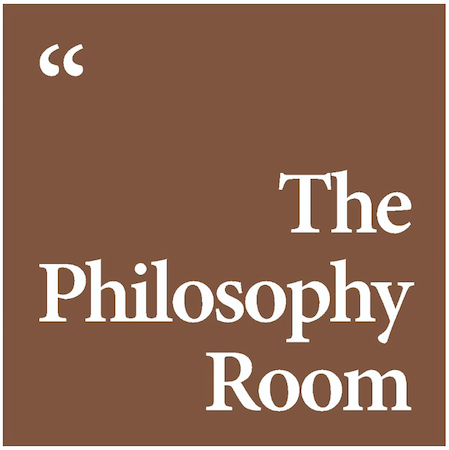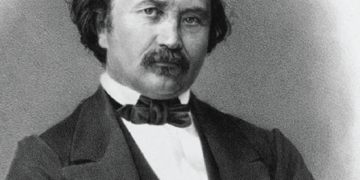Willard Van Orman Quine
1) His Biography
Willard Van Orman Quine, widely known as W.V. Quine was a prominent American philosopher and logician. He was born on June 25, 1908, in Akron, Ohio. Quine displayed exceptional intellectual abilities from a young age and developed a strong interest in mathematics and logic. He earned his bachelor’s degree in mathematics from Oberlin College in 1930, followed by a Ph.D. in philosophy from Harvard University in 1932.
Quine’s career was marked by his extensive contributions to various branches of philosophy, including logic, epistemology, and the philosophy of language. His most notable work, “Two Dogmas of Empiricism,” published in 1951, challenged the traditional distinction between analytic and synthetic statements, advocating for a holistic approach to scientific knowledge. Quine argued that scientific theories should be understood as interconnected webs, with no clear-cut division between observational and theoretical terms.
Throughout his career, Quine had a profound influence on logical positivism and analytic philosophy. He developed a naturalistic approach to philosophy, rejecting the notion of a sharp divide between empirical science and philosophy. Quine’s holistic view of knowledge and his skepticism towards the analytic/synthetic distinction sparked considerable debate and reshaped the landscape of philosophical inquiry.
Quine was not only a philosopher but also a talented logician. He made significant contributions to formal logic, particularly in the field of predicate logic. His development of the “Quine notation” for predicate logic introduced a more concise and efficient symbolic representation, which has since become widely adopted.
Despite his highly abstract philosophical ideas, Quine was known for his clarity of thought and writing style. He had a remarkable ability to convey complex concepts in a lucid and accessible manner. This made his works influential not only within academic circles but also among general readers interested in philosophy.
Quine’s impact extended beyond the realm of philosophy. He actively engaged in interdisciplinary collaborations, especially with scientists and mathematicians. His ideas influenced fields such as linguistics, cognitive science, and computer science, where his work on the verification of computer programs made a lasting impression.
2) Main Works
Word and Object (1960):
In this influential book, Quine explores the relationship between language, meaning, and the external world. He introduces the concept of “indeterminacy of translation,” arguing that it is impossible to provide a definitive translation of one language into another due to the holistic nature of meaning and the inscrutability of reference. Quine’s work in “Word and Object” challenges traditional accounts of language and meaning, emphasizing the importance of empirical evidence and radical translation.
Two Dogmas of Empiricism (1951):
Considered one of Quine’s most significant contributions, this essay critically examines the tenets of logical positivism, specifically the analytic/synthetic distinction and the reduction of meaningful statements to statements about experience. Quine argues against the existence of a rigid distinction between analytic and synthetic statements, suggesting that our overall web of beliefs is subject to revision in light of empirical evidence. This work paved the way for a more holistic and naturalistic approach to scientific knowledge.
Ontological Relativity and Other Essays (1969):
This collection of essays addresses several key philosophical issues, including ontology, reference, and the nature of reality. Quine argues that ontology is ultimately a matter of choice, and that we should adopt the simplest ontology that allows us to account for all the phenomena of our experience. He also discusses the concept of indeterminacy of reference, which suggests that the meaning of a term is dependent on the entire network of beliefs and concepts in which it is embedded.
Methods of Logic (1950, revised edition in 1982):
Quine’s “Methods of Logic” is a comprehensive textbook on formal logic. It covers topics such as propositional logic, predicate logic, and set theory, presenting a systematic and rigorous treatment of these subjects. Quine’s logical notation, often referred to as the “Quine notation,” introduced a more concise and elegant symbolic language for expressing logical propositions. This work has been widely used as a foundational text in the study of logic.
The Web of Belief (co-authored with J.S. Ullian, 1970):
In this collaborative work, Quine and Ullian explore the nature of knowledge and justification. They argue that our beliefs form a coherent web, and any belief within this web can be adjusted or revised in light of new evidence or challenges. The book examines the dynamics of belief revision and offers insights into the process of forming and evaluating our beliefs.
3) Main Themes
Holism:
Quine’s holistic approach to knowledge and language asserts that individual statements or beliefs derive their meaning and justification from their place within a broader network of interconnected beliefs. According to Quine, revising or changing one belief may have implications for the entire web of beliefs, highlighting the interconnectedness and interdependence of our knowledge.
Naturalism:
Quine’s naturalistic perspective rejects the notion of a sharp divide between empirical science and philosophy. He advocated for philosophy to be closely aligned with the methods and findings of the natural sciences, emphasizing the importance of empirical evidence and scientific inquiry in understanding the world and addressing philosophical questions.
Indeterminacy of Translation:
Quine’s concept of indeterminacy of translation challenges the idea that there is a single correct translation of one language into another. He argues that there are multiple possible interpretations of sentences and terms, and no definitive way to ascertain which translation is correct. This idea questions the stability and objectivity of meaning across different languages and cultures.
Confirmation Theory:
Quine made notable contributions to confirmation theory, which deals with the assessment of scientific hypotheses and theories in light of evidence. He argued against the traditional notion of a clear demarcation between observational and theoretical statements, advocating for a more holistic approach to theory testing and confirmation.
Ontology and Existence:
Quine’s writings extensively explore the nature of ontology, or what exists in the world. He proposed a criterion of ontological commitment, suggesting that we should accept the existence of entities if they play a role in our best scientific theories. Quine’s approach to ontology emphasizes simplicity and economy, encouraging philosophers to adopt the simplest possible ontology that can account for all relevant phenomena.
Epistemology:
Quine’s epistemological views center on the idea that knowledge is fallible and subject to revision in light of new evidence. He challenges traditional foundationalist accounts of knowledge, which posit indubitable or incorrigible foundations. Instead, he argues that our beliefs are constantly open to revision and that knowledge is an ongoing process of updating and refining our web of beliefs.
4) His Contribution to Logic
Willard Van Orman Quine made significant contributions to the field of logic, leaving a lasting impact on its development. His work encompassed both formal logic and the philosophical underpinnings of logical reasoning.
One of Quine’s notable contributions to logic is his development of the “Quine notation” for predicate logic. The Quine notation introduced a more concise and elegant symbolic language for expressing logical propositions. By refining the notation, Quine improved the clarity and precision of logical formulas, facilitating the study and application of predicate logic.
Quine’s work on quantified modal logic also stands out as a significant contribution. He extended classical logic to incorporate notions of necessity and possibility, allowing for the formal representation and analysis of modal statements. Quine’s development of quantified modal logic opened new avenues for exploring modalities and reasoning about the necessity and contingency of propositions.
Beyond his formal contributions, Quine’s philosophical insights had a profound impact on the understanding and practice of logic. He questioned the traditional distinction between analytic and synthetic statements, challenging the assumption that logical truths were purely analytic. This questioning led to a more nuanced understanding of logical reasoning and the recognition that logical principles are grounded in empirical evidence and observation.
Quine’s holistic approach to knowledge and language had implications for logical inquiry as well. He argued against a narrow, fragmentary view of logic divorced from other areas of philosophy and scientific inquiry. Instead, he advocated for logic to be situated within a broader web of beliefs and empirical investigation. Quine’s perspective emphasized the interconnectedness of logic with other branches of philosophy and the natural sciences.
Furthermore, Quine’s work on the indeterminacy of translation and the inscrutability of reference had implications for the study of logic. These concepts challenged traditional assumptions about the unambiguous interpretation and reference of logical symbols and terms. Quine’s ideas prompted further investigations into the nature of reference and meaning within logical systems, enriching the understanding of logic as a tool for analyzing and communicating knowledge.
5) His Legacy
Willard Van Orman Quine’s intellectual legacy is far-reaching and continues to have a profound impact on various branches of philosophy and beyond. His contributions to logic, philosophy of language, epistemology, and ontology have left an indelible mark on the field of philosophy and influenced subsequent generations of scholars.
Quine’s holistic approach to knowledge and language has had a lasting impact on philosophical inquiry. By emphasizing the interconnectedness of beliefs and rejecting the sharp distinction between analytic and synthetic statements, Quine challenged traditional assumptions and sparked ongoing debates in epistemology and philosophy of science. His holistic perspective continues to shape contemporary discussions on the nature of knowledge and the methodology of scientific inquiry.
In the field of logic, Quine’s developments in notation and his contributions to quantified modal logic have become fundamental tools for formal reasoning and analysis. The Quine notation introduced a more elegant and efficient symbolic language, widely adopted in logical systems and textbooks. His work on modal logic provided a framework for reasoning about necessity and possibility, opening new avenues of exploration in modal reasoning and metaphysics.
Quine’s naturalistic approach to philosophy has also had a lasting impact beyond the realms of academic philosophy. His emphasis on empirical evidence and the integration of philosophy with the natural sciences has influenced fields such as linguistics, cognitive science, and computer science. His ideas on language and meaning continue to inform contemporary theories in linguistics and shape the understanding of how language functions as a cognitive tool.
Furthermore, Quine’s explorations of ontology and the criteria for existence have stimulated ongoing debates on the nature and scope of ontology. His criterion of ontological commitment, focusing on the role of entities in our best scientific theories, has provided a framework for understanding the nature of existence and has influenced subsequent discussions on metaphysics and the philosophy of science.
Quine’s lucid and accessible writing style made his works influential beyond academic circles. His ability to convey complex ideas in a clear manner has made his writings accessible to general readers interested in philosophy. Quine’s ideas continue to inspire and challenge scholars, fostering ongoing research and exploration in his areas of expertise.












